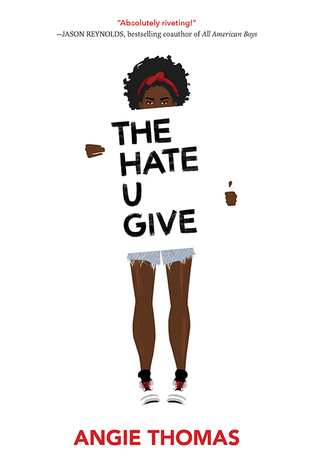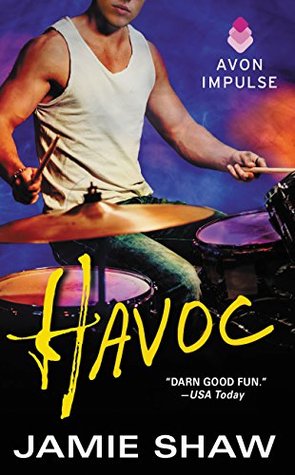I should start by saying a few things. First, I usually really like Jay Crownover. She is the only author I have ever taken the time to go meet, I’ve bought all of her books regardless of whether the premise actually sounded good to me, and, for the most part, I have enjoyed them all. Second, I am from the south; not the deep south of Mississippi, but from a place where confederate flags flying are not unusual (on trucks, in front yards, and on as many articles of clothing as you can think of).
Lastly, I am mixed. Half black and half white. My heritage will go a long way in explaining all the problems I have with this book. And I should state up front, that I obviously do not speak for all mixed people (there isn't even agreement in our community on what to call ourselves; many don't even like the word mixed. I like mixed because it includes those who are more than just biracial, although I see why people don't like the term), nor do I speak for all black people. I speak for myself and my frustrations are based on my experiences.
I’m not going to get much into the premise of this book, other than to say it involves a wounded soldier who thinks he’s a fault for all the hurt in the lives of those around him, and a girl who thinks she can fix everything and everyone.
So, I have not yet finished this book, and I am already reviewing it, because I am more frustrated than I thought would be possible reading a book. I am a huge proponent of included people of color (POCs) in books. I think this is so very important for some many different reasons, and I even believe that people who are not POCs should include them in their work. But I think two things need to happen if you are not part of a group and want to write from their perspective. One, you need to do research, and two, you need quite a few people to do a sensitivity reading. Let me use this book as an example as to why that needs to happen.
The main character of Riveted is named Dashel Churchill, and he goes by Church or Dash. The character complains about the issues of growing up in the south with an “unusual” name. Neither Dashel, Dash, or Church would be considered that strange of a name. Kids with “ordinary” names get picked on all the time. And in the south “unusual” names are a dime a dozen.
POCs don’t normally refer to themselves as such in their heads. I have met lots of them. I am one of them. As a group, we are POCs, but individually, we are what we are. It is weird that the main character would refer to himself as a person of color in his own head instead of thinking about his own heritage. Also, it’s weird for other people to say it, too. There shouldn’t be anything wrong with calling a character what he is instead of mentioning it once and then referring to him as a POC for the rest of the time.
What is going on with the stereotypes!? Church’s dad (the POC in an interracial relationship with a white woman) leaves before he’s even born? It may have worked for the storyline, but considering all the other points against this book, this one was still egregious. I think the author may have felt it was okay because the person who steps up to father Church is black, but I still think depending on the stereotype of black man leaving their children was a bad move.
Finally, how is the main character, Dixie, who is in love with this wonderful guy, the opposite of woke? I imagine, any minute, she’s going to say something idiotic along the lines of “I don’t see color.” How does she not understand that a black/middle eastern/white man will be afraid to go into a bar when there are a bunch of trucks outside flying confederate flags? And what was the point of mentioning it if nothing was going to happen in that bar? Was the point to say that just because someone flies a confederate flag, they aren’t going to start trouble with every POC they see? Was the point to say that flying a confederate flag doesn’t make you racist? Was the point to say that a POC should not be afraid of trouble just because they see a confederate flag? Because let me just say, I grew up around those flags, I grew up around plantations, and I grew up around reminders that my family members were, not too long ago, enslaved. Then, following that enslavement they were considered second class citizen. It some places, and in too many cases, we still are. Dixie is the epitome of white privilege. And what is even more concerning is the thought that, possibly, Jay Crownover believes these things as well. Sure, some may make the argument that the confederate flag is a reminder of states’ rights, but the right they wanted to hold on to was the right to keep people enslaved for free labor.
I am furious about how this book has portrayed not only the south, but also what it means to be a POC in America. If an author who is not part of a group wants to write about the experience of those in that group, then a lot of research needs to happen. This book is an example of why so many people ask that white authors not write about our experiences. If the book had stayed solely in Dixie’s perspective, I would have just thought the character was ignorant of those experiences, but adding Church’s POV really made it necessary that their was research done, and his perspective should have been handled with so much more sensitivity.
I'm not actually sure I'll finish this book. I know it will end with a happily ever after, as most romance novels do, but I imagine Dixie will remain unaware of what she has so far ignored other than on a very surface level.
I am extremely disappointed, and I'm not sure I will be reading another Jay Crownover book due to the lack of sensitivity with which she handled a very serious issue.

